Late 2022 conference

Breastfeeding:biological dialogues
Online September - December, 2022
Breastfeeding: biological dialogues, our 21st online breastfeeding conference in English covered a wide range of topics to inform and guide your clinical practice and to inspire and challenge your thinking about breastfeeding, nutrition and human lactation.

Pump it up!
Kimarie Bugg, DNP, MPH, FAAN, IBCLC - Read morePump it up!
Kimarie Bugg, DNP, MPH, FAAN, IBCLC
Dr Kimarie Bugg is President and CEO of Reaching Our Sisters Everywhere (ROSE), a national nonprofit created in 2011 to address breastfeeding inequities in the African American community and a career perinatal and neonatal nurse professional.
Dr Bugg has spent four decades working in the Atlanta Metropolitan area and nationally promoting perinatal health, breastfeeding, and community-based impact solutions. She previously worked in private pediatric practice and for Emory University, School of Medicine, as a nurse practitioner, at the state level, as a perinatal nurse consultant and in the hospital as a perinatal nurse educator, on inpatient pediatric floor, in the pediatric emergency center, special care nursery, and as a bedside breastfeeding consultant. She was the first African American IBCLC in the state of Georgia (1987). She is a Fellow of the American Academy of Nursing, was a member of the faculty for Best Fed Beginnings Baby Friendly Hospital Initiative (BFUSA) Cohort with NICHQ and with Boston Medical Center’s Communities and Hospitals Advancing Maternity Practices (CHAMPS) in the state of Mississippi. Dr. Bugg is a past member of the board of directors and chair of the ethics committee of the United States Breastfeeding Committee (USBC).
Dr Bugg is known internationally for her work in lactation, anti-racism and health equity strategies, the nonprofit world and marginalized community empowerment. She has received innumerable awards and recognition, including multiple lifetime achievement awards. She provides health equity through breastfeeding engagement, training, education and resources for healthcare providers, lactation support providers and community transformers nationwide.
Dr Bugg is adjunct faculty for Morehouse School of Medicine, Pediatrics and Union Institute and University.
Pump it up!
This presentation will describe reasons for exclusively pumping and the challenges that cause delayed or create inability to feed directly from the breast. It will provide insight into an array of pump types on the market. It will also describe both the physical and the physiological need for skin to skin contact. And finally it will identify methods to maintain and increase milk supply including the use of galactagogues.
1.25 L (IV,VI,VII) CERP
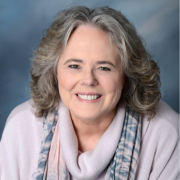
Breastfeeding & hypoglycemia: the highs & the lows (the never-ending story)
Nancy Wight, MD, IBCLC, FAAP, FABM - Read moreBreastfeeding & hypoglycemia: the highs & the lows (the never-ending story)
Nancy Wight, MD, IBCLC, FAAP, FABM
After 37 years as an attending neonatologist and 18 years as medical director of lactation services, Dr Nancy Wight retired from clinical practice 2019. She graduated from medical school and did her training in pediatrics at the University of North Carolina, Chapel Hill. She did her fellowships in Neonatal-Perinatal Medicine and ECMO at UCSD Medical Center in San Diego. She has been a board-certified lactation consultant since 1988.
Dr Wight co-founded the San Diego County Breastfeeding Coalition in 1994. She was the Breastfeeding Coordinator for AAP CA Chapter 3 from 1992 until 2020, Board Member of HMBANA 2015-2019 and established the first Donor Milk Depot in San Diego over 25 years ago. Nancy is a past president of the Academy of Breastfeeding Medicine. She wrote, and continues to update, the very first ABM Protocol on Hypoglycemia and Breastfeeding.
In 2014 Dr Wight was awarded the Golden Wave Award by the California Breastfeeding Coalition for her efforts to reduce obstacles to breastfeeding in California, and the WIC Breastfeeding Champion Award in 2017. She received AAP Special Achievement Awards in 1997 and 2021 for her breastfeeding education and promotion efforts.
On a personal note, she is the mother of a (formerly breastfed) archaeology student and lives in San Diego, CA, with her significant other, their dog, Darwin, and a beautiful view of the ocean.
Breastfeeding & hypoglycemia: the highs & the lows (the never-ending story)
Transient low blood glucose levels in the first 1–2 hours after birth are common, occurring in almost all mammalian newborns. Despite >60 years recognition that low blood glucose can cause neurologic compromise, we still do not know how low, for how long, and in which specific infants. New evidence has come to light, but so have new and varying recommendations, based on differing perspectives. The ABM revised clinical protocol hopes to provide practitioners with pragmatic, evidence-based guidance to keep infants safe while minimizing both unjustified interventions and adverse outcomes. We will review the updated ABM recommendations and the evidence behind them.
1.25 L (I,II,III,VII) CERP
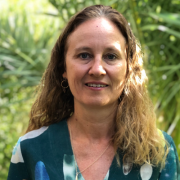
“Look at me, Mum!” A focus on maternal gaze. Breastfeeding as a window into the visual dialogue between mother & baby
Rachel Chiodo, BA, GradDip (Child & Adol Psych) - Read more“Look at me, Mum!” A focus on maternal gaze. Breastfeeding as a window into the visual dialogue between mother & baby
Rachel Chiodo, BA, GradDip (Child & Adol Psych)
Rachel Chiodo has been working in Private Practice as a Psychologist in Melbourne for over 25 years. She worked as a School Psychologist with children aged 3-18 years for 5 years and has been a Consulting Psychologist to Mother Baby / Early Parenting Units in two Melbourne Hospitals for over 20 years. Rachel’s initial training was in Child & Adolescent Psychology & she has subsequent training in Psychotherapy, Perinatal Psychology, Trauma Therapy, Infant Mental Health and in Environmental Studies.
Rachel’s current practice is primarily with new mothers and their babies. She works as a part of a Clinical Team in a Hospital, as well as in close connection with General Practitioner Doctors, Maternal & Child Health Nurses, Midwives, Lactation Consultants, Psychiatrists and Early Childhood Education Centres.
Rachel spent 2018/19 living in Bologna, Italy, with her own family. She worked with a group of Italian Psychologists affiliated with the Anna Freud Centre in the UK. Rachel assisted in the development of programs supporting new mothers with extreme histories of trauma and addiction in an Italian residential care facility near Bologna.
The focus of Rachel’s work is to support the development of a happy and healthy mother baby relationship, to create the best possible environment for healthy child development.
“Look at me, Mum!” A focus on maternal gaze. Breastfeeding as a window into the visual dialogue between mother & baby
Mothers and their babies look at each other with wider eyes than they perhaps have ever looked at anything or anyone before. They look deeper and they look longer. They look in wonder, they look in amazement, they look in surprise, and they look in love. The job of a mother and baby in the first weeks of life is really to find & develop a connection that holds them together.
Breastfeeding supports this connection, and any work facilitating healthy breastfeeding, or if necessary, of attuned bottle feeding, supports the development of this deep and enduring bond between a mother and her baby. This bond serves to build strong brain architecture which will facilitate the best possible physical and emotional environment for healthy child development.
1.00 L (I,V) CERP

Milk exosomal microRNAs in the prevention and treatment of necrotizing enterocolitis
Bodo Melnik, MD - Read moreMilk exosomal microRNAs in the prevention and treatment of necrotizing enterocolitis
Bodo Melnik, MD
Professor Bodo Melnik graduated in medicine from the University of Muenster in 1982 and spent two years as a visiting scientist at the Cardiovascular Research Institute at the University of California San Francisco. He then studied dermatology at the Heinrich-Heine-University in Dusseldorf Germany for six years.
Since 1991 Dr Melnik has been a senior Lecturer at the Department of Dermatology, Environmental Medicine and Health Theory, University of Osnabrueck, Germany; and since 1994 an Associate Professor at the University of Osnabrueck. He is also a member of the European Society for Dermatological Research and an editorial board member of the Journal of Translational Medicine.
His major research interests are acne, sebaceous and epidermal lipid metabolism; molecular biology of milk, milk signal transduction, milk exosome and microRNA-mediated gene regulation, human milk´s physiological role in infant programming and the contribution of cow’s milk to the pathogenesis of chronic Western diseases of civilization.
Milk exosomal microRNAs in the prevention and treatment of necrotizing enterocolitis
Human milk is not food but an epigenetic program that is only appropriately transmitted by breastfeeding. In a strict sense, the newborn infant is not breastfed but in fact breast- programmed by the mammary gland. Human milk composition and signaling functions are controlled by the human lactation genome, which had developed over millions of years of mammalian evolution. We should rely on the functions and opportunities of our own genes, provided as a natural birthright for all mammals and especially for our preterm infants. Colostrum- and mature milk-derived exosomes have been identified as most favorable natural agents for the prevention and treatment of NEC.
1.50 L (I,II,VII) CERP

Instinctive nursing: simple and effective
Tom Van den Broeck, IBCLC - Read moreInstinctive nursing: simple and effective
Tom Van den Broeck, IBCLC
After first studying Dutch and English linguistics and literature, followed by a Masters in musical theatre at the Conservatory of Brussels, Tom Van den Broeck decided to become a midwife. Regardless of being the only male midwife in his college, he felt that this was the right thing for him to do. After his studies, he immediately started as an independent midwife, at first combining it with a part-time job in an Antwerp hospital. In 2008 he co-founded the midwifery practice “La Madrugada” in Antwerp. In 2010 he followed a postgraduate programme to become a lactation consultant and acquired the IBCLC-certification. He is fascinated by the physiology of human babies and regularly holds talks about this subject mainly in Flanders, Belgium, and Holland.
Instinctive nursing: simple and effective
People have always been inventive when it comes to finding solutions for certain breastfeeding problems: nipple shields, lactation aids, Special Needs Feeder,… new and specialised products are launched every year. One would almost forget that putting your baby to the breast is something so natural. It doesn’t demand a lot of skills and it certainly isn’t rocket science. Following the innate reflexes of a healthy and full term baby, a mother’s breastfeeding journey should run simply and effectively.
1.00 L (I,V,VI,VII) CERP
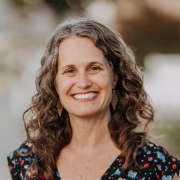
Providing virtual support to chest/breastfeeding families
Robin Kaplan, MEd, IBCLC - Read moreProviding virtual support to chest/breastfeeding families
Robin Kaplan, MEd, IBCLC
Robin Kaplan has been an IBCLC since 2009, the same year that she opened up the San Diego Breastfeeding Center. In 2016, she founded the San Diego Breastfeeding Center Foundation, a nonprofit organization whose mission is to reduce breastfeeding/chestfeeding disparities among families of color and low-income families, as well as provide scholarships for women of color to become IBCLCs. Robin was the founding host of the Boob Group podcast and published her first book, Latch: a Handbook for Breastfeeding with Confidence at Every Stage in 2018. Robin is currently attending the Functional Nutrition Alliance to become a Functional Nutrition Counselor. In her free time, Robin enjoys hanging out with her two teenage boys, hiking, traveling, weaving, relaxing at the beach, cooking, and searching for the best chai latte.
Providing virtual support to chest/breastfeeding families
The need to provide virtual support for chest/breastfeeding families may have been ignited by the pandemic, but telehealth is here to stay. The convenience and flexibility of meeting with families virtually removes barriers, such as location, childcare, and transportation. It also comes with its own set of challenges, such as difficulties reading body language, making connections with our clients, and assessing oral anatomy/milk transfer. Yet, with some intentional preparation, crafty detective skills, open-ended questions, and protocols for complicated situations, you may find that virtual consultations can truly meet the needs of your clients/patients.
1.00 L (I,V,VI,VII) CERP

Exploitation of the COVID-19 pandemic by BMS companies in Indonesia
Dr Irma Hidayana - Read moreExploitation of the COVID-19 pandemic by BMS companies in Indonesia
Dr Irma Hidayana
Dr Irma Hidayana is an independent public health consultant with a doctorate in health and behavior studies from Columbia University, USA. Her research focuses on the impact of the baby food industry on public health, on conflict of interest in public health, and on public health and human rights.
She is the initiator of a community-based reporting platform that received and collected information on violations of the International Code of Marketing of Breast-milk Substitutes, Pelanggaran Kode.
Exploitation of the COVID-19 pandemic by BMS companies in Indonesia
This presentation will describe the unethical marketing practices of commercial formula milk and other breast milk substitute products during the COVID-19 pandemic in Indonesia. This presentation suggests that the COVID-19 pandemic has provided novel opportunities for the baby food industry to attempt to circumvent the Code aggressively with newer marketing strategies in Indonesia.
0.75 E (VII) CERP

Also known as the WHO Code: understanding and making the International Code relevant
Lourdes Santaballa Mora, MS, IBCLC, CLAAS, IYCFS - Read moreAlso known as the WHO Code: understanding and making the International Code relevant
Lourdes Santaballa Mora, MS, IBCLC, CLAAS, IYCFS
Lourdes Santaballa is a community activist and community organizer, having worked in the domestic violence, housing equity and reproductive rights/infant feeding movements. In lactation, Lourdes has worked as a volunteer peer counselor, IBCLC, mentor, researcher and trainer. She is the co-founder of Alimentación Segura Infantil, an organization focused on increasing breastfeeding, leadership, and capacity building in traditionally marginalized communities, with a focus on disaster preparedness, response and recovery, which speaks in non-binary and gender inclusive terminology in the binary language of Spanish. Formed after Hurricanes Irma and Maria in 2017, and still working after the earthquakes of 2019-2020 and the COVID-19 pandemic. ASI is currently the largest non-profit community-based infant and young child feeding organization in Puerto Rico, also providing services wherever Spanish speaking assistance is needed. ASI has also been an IBCLC Care Award recipient and is a mentorship path for aspiring IBCLCs. Lourdes is a former La Leche League leader and has been active in the United States Breastfeeding Committee (USBC), IFE (Infant Feeding in Emergencies) Core Group and United States Lactation Consultant Association (USLCA) and has received various awards and recognitions in the field for her activism and research. Amidst two category 5 hurricanes, earthquakes, and a global pandemic, she was able to finish her master’s degree in Clinical Nutrition and Integrative Health in 2020. You can listen to her weekly podcast in Spanish, Teta y Pecho: Lactancia Interseccional on all the major platforms.
Also known as the WHO Code: understanding and making the International Code relevant
The International Code on Marketing of Breastmilk Substitutes is one of the most important documents regarding ethical conduct on education and the promotion of products to our service population. But how many of us have (or will) really read it? In simple words and with everyday examples, we will dissect the most important aspects of the document and give concrete examples of what the International Code covers and doesn’t, some of its problems and limitations, and how we can ethically apply its intentions to our work as lactation support professionals.
1.25 E (VII) CERP
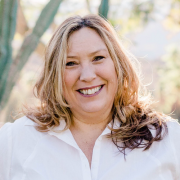
Motivational Interviewing - launching communication skills for the perinatal professional
Christy Jo Hendricks, IBCLC, RLC, CLE, CCCE - Read moreMotivational Interviewing - launching communication skills for the perinatal professional
Christy Jo Hendricks, IBCLC, RLC, CLE, CCCE
Christy Jo Hendricks is an international speaker, teacher, inventor and author. She has made a career of instructing in ways that simplify learning and keep audiences engaged. Students enjoy her informative and entertaining teaching style.
Her career has allowed her the privilege of serving families in hospital settings, through public health programs, at her local WIC clinic, during weekly community support groups and in private practice. She has been awarded the Presidential Volunteer Award, Who’s Who among Teachers, Phyllis Klaus Award for Positive Impact on Parent/Infant Bond, Above and Beyond Award for Innovative Practice by the Department of Public Health and Lactation Faculty of the Year from CAPPA. She has also been recognized for her publications.
Christy Jo created and taught an IBCLC prep course that earned state-wide recognition. Her IBCLC prep course has been successful in preparing hundreds of students to become Lactation Consultants.
She resides with her family in California, USA where she continues to serve her community as an IBCLC, CLE, CCCE and birth doula. Christy Jo also works part time for the Department of Public Health and serves as faculty for the CAPPA CLE© and Childbirth Educator Programs.
Motivational Interviewing – launching communication skills for the perinatal professional
Motivational Interviewing (MI) is a proven, successful method of guiding clients to experience real change. It is based in the belief that all individuals understand their own situation best and it is imperative to collaborate with them in their care plan. This presentation will explain how clinicians and counselors can help facilitate behavioral change by using the spirit, principles and techniques of MI. This topic is suited for all professionals who desire to learn counseling skills and techniques to guide clients to reach their desired outcomes
1.00 R (VII) CERP

Newborn feeding practices and barriers of early initiation – a cross sectional study from a public hospital of Vadodara City, Gujarat, India
Vanisha Nambiar, PhD, MSc - Read moreNewborn feeding practices and barriers of early initiation – a cross sectional study from a public hospital of Vadodara City, Gujarat, India
Vanisha Nambiar, PhD, MSc
Professor Vanisha Nambiar is the Coordinator, Public Health Nutrition, Department of Foods and Nutrition and Deputy Director, Office of International Affairs, The Maharaja Sayajirao University of Baroda (MSU, Baroda), Vadodara, Gujarat, India.
She is the Convener, World Breast feeding Week celebrations – Vadodara Alliance with Indian Academy of Pediatrics, FOGSI (Vadodara), and all four medical colleges around the Vadodara city.
Prof Nambiar has been involved in the several projects in Public Health Nutrition, Dietetics and Food Science which can be broadly divided into: System strengthening & operations research for advocacy; evidence generation & nutrition advocacy; Partnerships & collaborations and capacity building with nearly over 50 publications, 6 books and 8 chapters in books.
Newborn feeding practices and barriers of early initiation – a cross sectional study from a public hospital of Vadodara City, Gujarat, India
Breastfeeding and human lactation is often considered a simple topic and not addressed seriously especially during antenatal checkups, the consequences of which lead to delays in early initiation. There has been an increase in the early initiation of breastfeeding rates (23% to 42%), institutionalized deliveries (38.7% to 78.9%) in India as per from NFHS 3 to NFHS 4 reports. However, the prevalence of exclusive breast feeding (EBF) rates (54.9%) is still a cause of concern in India. The present study focused on the assessment of the post-natal difficulties, newborn care, feeding practices and nutritional outcomes to make Vadodara Baby Friendly.
0.75 L (VI,VII) CERP
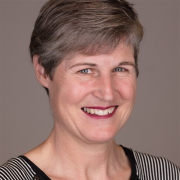
The functional anatomy of sucking during breastfeeding: How amazing is the tongue!andThe functional anatomy of swallowing and airway protection in the breastfeeding infant: Understanding the impact of positioning
Nikki Mills, BHB, MBChB, Dip Paeds, FRACS, IBCLC, PhD - Read moreThe functional anatomy of sucking during breastfeeding: How amazing is the tongue!andThe functional anatomy of swallowing and airway protection in the breastfeeding infant: Understanding the impact of positioning
Nikki Mills, BHB, MBChB, Dip Paeds, FRACS, IBCLC, PhD
Dr Nikki Mills is a Paediatric ENT Consultant, who worked at Starship Children’s Hospital for 11 years, specialising in paediatric airway and swallowing disorders. Dr Mills led a Multidisciplinary Dysphagia clinic at Starship, with a particular clinical interest in supporting mothers and infants having difficulty breastfeeding. Nikki completed a PhD on “The Functional Anatomy of Sucking and Swallowing in Breastfeeding Infants” that included research on ankyloglossia. She has 5 publications from her PhD research.
The functional anatomy of sucking during breastfeeding: How amazing is the tongue!
Understanding how babies suck during breastfeeding requires a sound knowledge of anatomy and how all of the “parts” move and work. Breastfeeding is a 3-dimensional symphony of motion, with the infant’s tongue playing a key role in successful milk transfer. Our current understanding of the biomechanics of sucking during breastfeeding will be reviewed. The talk will review our understanding of infant tongue and oral anatomy: focusing on what is different from adults and how these differences are “designed” to optimize breastfeeding. The talk will include an overview of my PhD research on the structure and histology of the lingual frenulum and floor of mouth.
1.50 L (III,VI,VII) CERP
The functional anatomy of swallowing and airway protection in the breastfeeding infant: Understanding the impact of positioning
Swallowing during breastfeeding has scarcely been researched because of many practical issues that make capturing or imaging events occurring during the breastfeeding swallow very difficult to achieve. Much of our understanding of the biomechanics of infant swallowing is therefore based on research using bottle feeding. The talk reviews the functional anatomy of the pharynx (throat) and larynx (voice box) in the context of what changes occur during swallowing. An explanation of what occurs in aspiration will be given. Dynamic imaging will be shown of the breastfeeding swallow (both with cine MRI and endoscopy). This talk will include my PhD research on the impact of gravity (positioning of the infant) on the infant’s breathing and fluid dynamics during swallowing. This information helps us understand how specific positioning may be used therapeutically to improve an infant’s breathing and airway protection during breastfeeding.
0.75 L (III,VI,VII) CERP
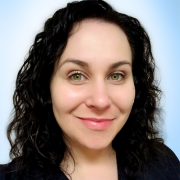
Lactation support for patients with larger breasts/chests
Megan Dunn, BS, IBCLC - Read moreLactation support for patients with larger breasts/chests
Megan Dunn, BS, IBCLC
Megan Dunn is a board certified Lactation Consultant and Health Educator who holds a Bachelor of Science in Anthropology and Sociology. This educational background informs her understanding of the social and cultural complexities of the infant feeding relationship. With more than 15 years serving families, her experiences have run the gamut as a volunteer, peer-to-peer counselor, clinical IBCLC, and as an educator for parents and professionals. Currently she is the Breastfeeding Program Coordinator for the local Public Health agency where she is coordinating a pilot program to equitably expand peer-to-peer support. She is privileged to be a part of the excellent Women’s Health Education team in her local health care system as well as a provider for in-home lactation consultations for her community. She seeks to support biological feeding norms while offering practical and empowering solutions for dyads.
Lactation support for patients with larger breasts/chests
Lactating parents with larger breasts/chest face practical challenges with breastfeeding/chestfeeding including physical discomforts and lack of products designed for their morphology. Alongside these practical challenges, families also must contend with the psychological dilemmas resulting from body shaming and hypersexualizing messages from the media and culture. Some parents must also grapple with comorbidities associated with larger breast/chest morphology.
As lactation supporters and clinical providers a lack of research exists to offer evidence-based guidelines, protocols, or recommendations for these patients.
This presentation addresses all these concerns in addition to providing recommendations for pragmatic functional solutions, addressing provider bias and assumptions, and teaches skills for body acceptance within a trauma informed care model.
1.50 L (I,VI,VII) CERP

Breastfeeding challenges of refugee mothers in Canada: challenges, opportunities and the way forward
Shela Hirani, PhD, IBCLC, RN, Advanced Diploma in ECD - Read moreBreastfeeding challenges of refugee mothers in Canada: challenges, opportunities and the way forward
Shela Hirani, PhD, IBCLC, RN, Advanced Diploma in ECD
Dr Shela Hirani is an Associate Professor at the University of Regina, Faculty of Nursing, Canada. She is a neonatal and child health nursing professional, nurse-academician, nurse-researcher, and an International Board-Certified Lactation Consultant. Dr Hirani is actively involved in the promotion, protection, and support of breastfeeding at diverse settings, including disaster relief camps, mothers’ workplace setting, child daycare center, hospitals, and post-secondary institutions of low-income, middle-income and high-income countries. She has an established program of research surrounding breastfeeding advocacy among marginalized group of mothers and young children who are refugee, immigrants, internally displaced, homeless, and affected by the pandemic.
Breastfeeding challenges of refugee mothers in Canada: challenges, opportunities and the way forward
Refugee mothers are vulnerable to cultural stereotyping and socioeconomic hardships when they migrate to a new country. This vulnerability often has a negative impact on refugee mothers’ breastfeeding practices, related to social, emotional, psychological, and physical stressors. Saskatchewan is one of the growing provinces in Canada that has a noticeable increase in refugee population with young children, limited availability of healthcare settings with Baby-Friendly Initiatives (BFI) status, and existing gaps in knowledge surrounding facilitators and barriers to breastfeeding practices of refugee mothers. This study aimed at exploring factors that promote or impede breastfeeding practices of refugee mothers accessing and utilizing healthcare services in Saskatchewan, Canada.
1.00 L (V,VII) CERP
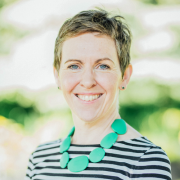
Providing sensitive and person-centred breastfeeding support to women who have primary low milk supply
Caominhe Whelan, BEng, IBCLC - Read moreProviding sensitive and person-centred breastfeeding support to women who have primary low milk supply
Caominhe Whelan, BEng, IBCLC
Caominhe Whelan is an IBCLC working in private practice in South Dublin since 2017. She also teaches breastfeeding and lactation classes at tertiary level (to trainee GPs and other healthcare professionals). She qualified as an IBCLC in 2016 and prior to this was a voluntary breastfeeding counsellor for seven years. She is currently doing a part-time research MSc through the school of Nursing, Midwifery and Health Systems at University College Dublin (finishing May 2022). The title of her thesis is The Lived Experiences of Women Breastfeeding with Primary Low Milk Supply: An Interpretative Phenomenological Analysis. She has presented several times previously at the Association of Lactation Consultants of Ireland annual conference on topics including At the Breast Supplementation, Supporting Breastfeeding in Babies with Structural Issues and Starting in Private Practice as an IBCLC.
Providing skilled and sensitive breastfeeding support to women who have primary low milk supply
Most women are able to exclusively breastfeed. However, a small cohort are unable to produce enough milk to exclusively breastfeed due to having primary low milk supply (PLMS). This presentation will present the findings of a qualitative study (competed as part of a research MSc at UCD) that explored the lived experiences of nine first-time mothers breastfeeding with PLMS. Three main superordinate themes emerged from this study. ‘Being in the Whirlwind’ captured the emotional and psychological challenges faced by participants in the months postpartum as they sought help, dealt with grief, confusion and stress, and struggled with triple feeding. ‘Being-‘with-others’ provided insights into participants’ experiences of engaging with healthcare professionals (HCPs) and other women, and in particular, their experience of internalised stigma. The third superordinate theme, ‘Reimagining Motherhood’, considered the impact of having PLMS on new motherhood, the embodied experience of breastfeeding with PLMS, journeying towards acceptance and plans for breastfeeding a second baby. The presentation will present the findings and implications for breastfeeding education and promotion. It will also highlight the importance of skilled and individualized breastfeeding support for women with PLMS and illuminate specific areas for improving the care that HCPs in both clinical and community settings provide to women with PLMS.
1.00 L (II,III,VII) CERP
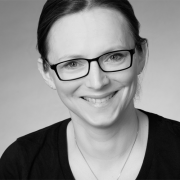
Persistent pain with breastfeeding
Alexandra Glass, MD, IBCLC - Read morePersistent pain with breastfeeding
Alexandra Glass, MD, IBCLC
Dr Alexandra Glass is an obstetrician and gynecologist and an IBCLC in Hanover, Germany. She is also the vice-president of the German board of IBCLC and teaches and lectures on breastfeeding, with a focus on medical problems during breastfeeding, pain with breastfeeding and also relactation/induced lactation. She is the mother of two daughters, age 14 and 11.
Persistent pain with breastfeeding
This presentation will give an overview about the reasons that can cause mothers to experience pain with breastfeeding and how we can intervene either via breastfeeding management or medically. Important aspects concerning breastfeeding management and counselling and possible therapeutic interventions will be discussed as well as the impact of painful breastfeeding on the breastfeeding dyad and the whole family.
1.00 L (III,VI) CERP
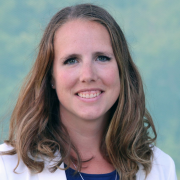
Gifts, growing, and love: depictions of breastfeeding in children’s literature
Kelsey Bianca, MA, CLC - Read moreGifts, growing, and love: depictions of breastfeeding in children’s literature
Kelsey Bianca, MA, CLC
Kelsey Bianca is an Assistant Professor of Social Sciences at Cecil College in North East Maryland, USA and a PhD student in Human Development and Family Science at the University of Delaware, USA. Her BS from Lynchburg College and MA degree from Washington College were both in psychology and her teaching is focused on psychology and sociology courses such as Introduction to Psychology, Abnormal Psychology and Human Growth and Development. Her research interests focus on qualitative examinations of infant feeding, specifically the social factors that influence infant feeding practices and decisions. In addition to teaching, she recently became a CLC She is a member of the American Psychological Association, the American Sociological Association, and the International Society for Research in Human Milk and Lactation. Her most current research projects are a theoretical analysis of infant feeding research and an ethnographic study of Women, Infants and Children lactation care.
Gifts, growing, and love: depictions of breastfeeding in children’s literature
Media portrayals of infant feeding are problematic, and breastfeeding is typically depicted negatively or ambivalently in television, magazines, and parenting books. Children’s literature is an understudied media form when it comes to breastfeeding representations that has the potential to present breastfeeding in different light. The current study examined 49 children’s books that depict breastfeeding as a major theme or story. Content analysis, a qualitative methodological approach, was used to examine the patterns and themes in this group of literature. Illustrations and words were analyzed. Children’s books depict breastfeeding as an act of love that confers benefits beyond nutrition like growth, a symbolic gift, and emotional soothing. Breastfeeding is presented and socialized by these books by teaching how mammals feed their young or by teaching children about the function of breasts. These books also often include information for parents, providing a unique avenue for authors and publishers to disseminate breastfeeding resources and information. This research has the potential to inform lactation practice and future research on breastfeeding in media.
1.00 L (V,VII) CERP
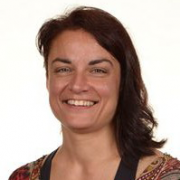
Professional guidance for parents with a crying baby: what questions to ask?
Katrien Nauwelaerts, BA, MA, IBCLC - Read moreProfessional guidance for parents with a crying baby: what questions to ask?
Katrien Nauwelaerts, BA, MA, IBCLC
Katrien Nauwelaerts graduated as a prehistoric archaeologist in 2005. She is the mother of three breastfed children and the administrator of the Dutch breastfeeding-website Borstvoeding Aardig.
Katrien worked as a volunteer breastfeeding-counsellor, provincial coordinator and training manager for the Belgian breastfeeding organisation Borstvoeding vzw between 2010-2014. In 2013 she became an IBCLC. Since 2013 she has been working as a lactation consultant at her own private practice Borstvoeding Aardig. She became a nutritionist and a herbalist in 2014. Katrien shares her experiences and knowledge on lactation consulting as a public speaker since 2014.
Professional guidance for parents with a crying baby: what questions to ask?
Sometimes parents have false expectations about parenting and baby behavior. And some cultural or anthropological parameters can strengthen the crying behaviour in a baby… We’re going to find out what’s going wrong and how to make babies and parents happy again.
1.00 L (I,V) CERP
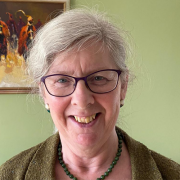
How can we talk about breastfeeding?
Eithne Murray, IBCLC, MA, BEd, Dip in Breastfeeding Counselling - Read moreHow can we talk about breastfeeding?
Eithne Murray, IBCLC, MA, BEd, Dip in Breastfeeding Counselling
Eithne Murray is the mother of two adult sons. She developed a passion for breastfeeding as a result of her own experience as a mother – a passion she did not know she had. She initially trained as a breastfeeding counsellor with NCT in the UK and, upon moving back to Ireland, trained as a breastfeeding counsellor with Cuidiú-the Irish Childbirth Trust, later becoming a tutor. She qualified as an IBCLC in 2009, and worked privately for a while. She has researched mothering experiences for her dissertation.
How can we talk about breastfeeding?
Promotion of breastfeeding is important, as mothers do not make their decisions about infant feeding in a vacuum. If women are not educated about breastfeeding, it is likely that the intense promotion of artificial feeding could take over. So we look at the kind of language that we know promotes effectively and the kind that we know does not.
Learners will learn about breastfeeding education, which is about more than promotion: it is about making the barriers to breastfeeding explicit to mothers. Learners will also hear about the evidence on communicating to postnatal mothers, and how our communication style can foster strong mother-baby relationships.
Our communication style and choice of language around breastfeeding matters. It is important we are mindful of the language we use – important for effective promotion and for fostering strong mother-baby relationships.
0.75 L (VI,VII) CERP


